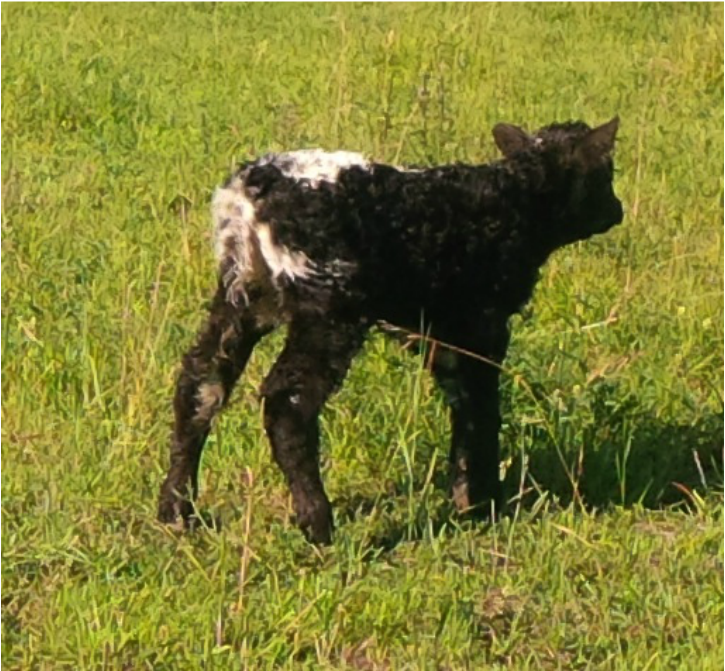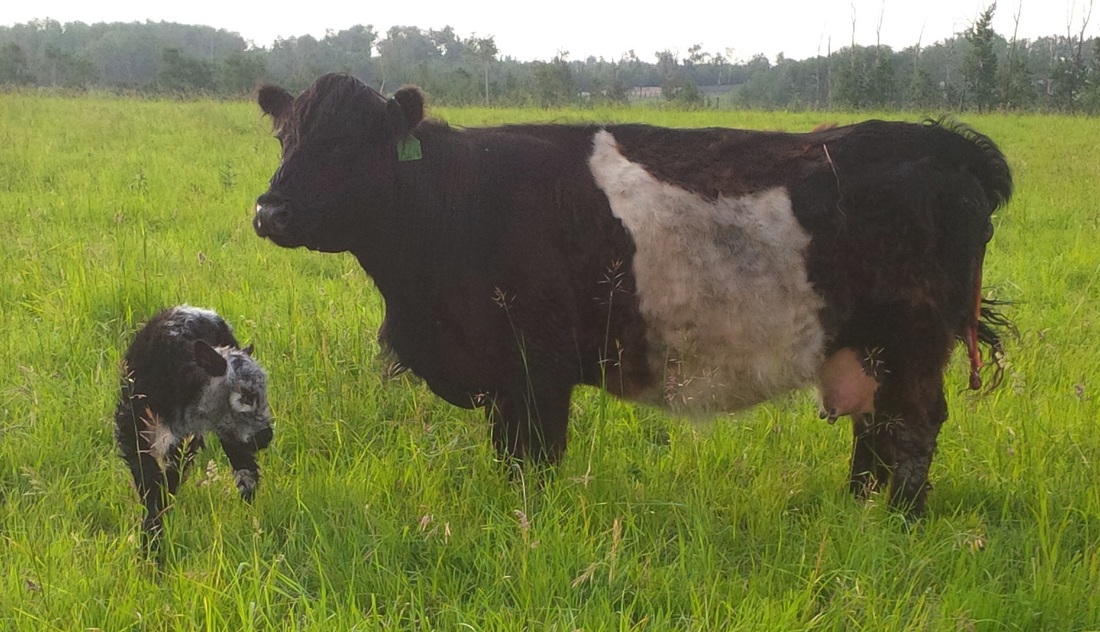The Galloway breed is a very old breed, hardy and able to thrive where other cows would find only marginal existence. They are smaller and ideal for a forage based operation. the traditional Galloway cow has a double coat for winter, so they require 25% less feed than the modern cows, who use some of that energy simply to keep warm. They do not require straw for bedding or additional shelters, either, since their double coats provide all they require to keep themselves quite comfortable, even in the cold winters of northern Alberta.
The Galloway cows have extra rich milk and lots of it. They easily can nurse their young ones for a year, however, the babes are best weaned when the bull calves show an interest in breeding for obvious reasons, around 7-9 months of age. The calves are born small with a strong will to survive and seldom do they require assistance to enter the world. The cows are excellent mothes with strong maternal instincts and have the babies cleaned and nursing very quickly. They are highly protective of the babies too. As a matter of fact, the Galloway cows will protect all the calves in the herd and seldom are any babies lost to predators, even pasture newborns.
Although Galloway cows are not milk cows, they have been milked in trying times and the milk is high in butterfat and generally is A2, that is the type of old style milk with easily digestible milk protein and little lactose. There is a stong resurgnece of those seeking A2 milk since A1 milk has caused great problems with the human digestive tract, while A2 milk is eaily tolerated and beneficial to humans. I hope to make friends of my little heifer so that I can share her rich milk every year with her little calf.
The beef from the cows is higher in the good fats and also nutrients of a forage fed cow. The cows eat many weeds that other cows will not touch, which in turn provides them with the minerals and vitamins to create healthy tissue.
I welcome our little boy and girl Galloways to the farm. The bull will eventually breed Kylie, the little Highland heifer already here and since he is 1/8 Highland, the calf will be about 60% Highland, though it could come with the belted colour of the Galloway, or be white, or riggid or even dun, since the genetics for all of those colours are in the heritage of the bull and some are with the Highland calf herself. The riggid Galloway heifer could be any of the above as well. I do not intend to be a farmer of meat cows or dairy cows, but do wish to be sustainable and utitlize the land better. The Galloways will forage in the bush and eat the leaves of the shrubs and trees well into winter, and as well paw the snow to access the grass below as they did in ancient times.
The Galloways are both from old style Galooway cows from a special North American premium breeder whose animals are sought after and well known through the Galloway world. The breed is naturally polled and bulls are used to introduce that trait to new herds, which is a heck of a lot better than having to burn their horns right out of their skulls as babies. The cows are quiet, easily manged and easily tamed. When the babies come to the farm, they will go into a very small area for a month while I take the time to tame them and they become familiar with me, then they will move to the next size pen. In the fall the heifter will likely be old enough to breed as they do breed young and it is not harmful to this breed. The bulls are calm and easily kept with the cows for most of the time. I wish to halter tain the cows so I have no problems moving them in their adult years.
Say hello to my new Galloway babies, the welcome additions to the Fat Ewe Farm !



 RSS Feed
RSS Feed